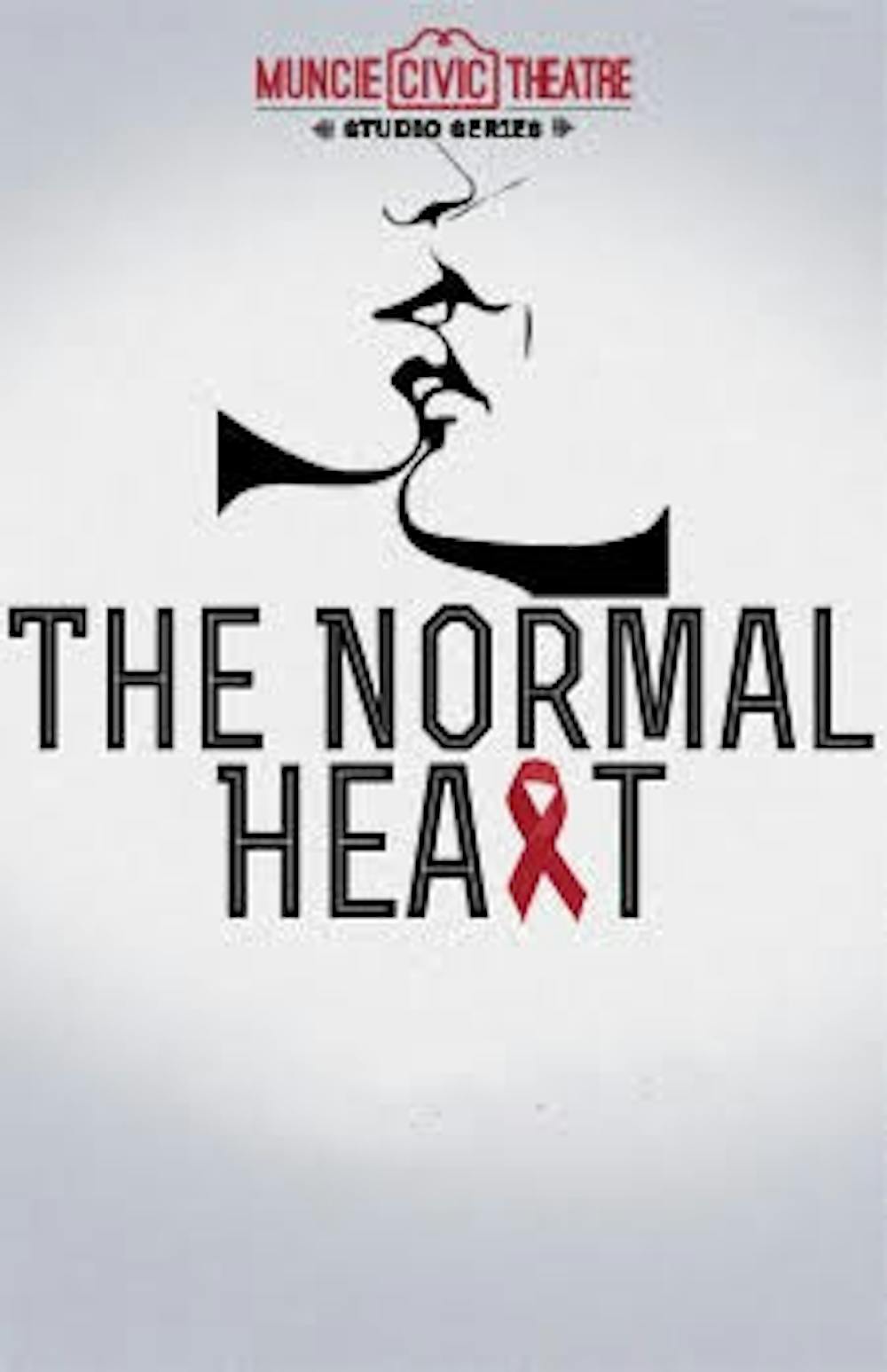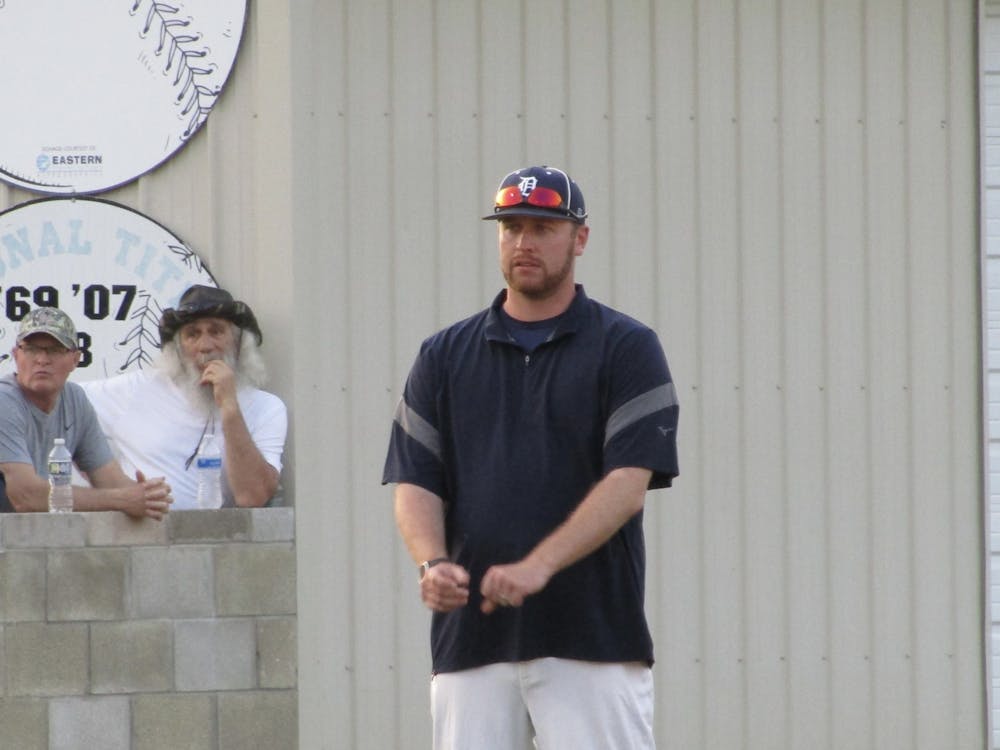What: The Normal Heart
When: March 31, April 1, 2, 8, and 9 at 8 p.m.
Where: Muncie Civic Theatre, 216 E. Main St.
Cost: $11 and can be purchased at munciecivic.org or by calling 765-288-7529
“The Normal Heart," a theater collaboration between Ball State's Department of Theatre and Dance and the Muncie Civic theatre will run March 31 and April 1, 2, 8 and 9 at 8 p.m. at the Muncie Civic Theatre.
The play is an autobiographical play by Larry Kramer as a reactionary piece against the way that the government and New York City were treating the AIDS epidemic in the early 1980s.
The story is set between the years of 1981-84 and follows a group of men and one female doctor who are all trying to figure out the mystery of the disease.
Nine actors will be involved in the play, all of whom are Ball State students.
Amanda Boldt is a junior musical theatre major and plays Dr. Emma Brookner — the only woman in the play.
Boldt's character is based off of Dr. Linda Laubenstein, who battled Polio as a child and eventually became one of the first pioneers of treating and researching the HIV/AIDS epidemic.
“She is extremely strong and works tirelessly and passionately to help these young men get the treatment and recognition they deserve when so many other doctors and government employees refuse to acknowledge the struggles they’re going through,” Boldt said.
Ben Weeks, played by sophomore acting major Justin Lee Vance, is the brother of a gay activist, Ned, and has grown up watching Ned discover life as a gay man. Ben encourages Ned to go to therapy.
“[Ben's] love for his brother is deep, but he struggles to accept [Ned's] sexuality due to what his upbringing has brought upon him,” Vance said. “He generally loves Ned, but he is constantly in conflict with his internal voice telling him what is ethical.”
Playing this character has presented Vance with an unexpected challenge due to the subject matter of the play and the opinions of his character.
“As a man who happens to be gay, playing a character that has ideas and opinions that I have not called my own for a long time is a challenge,” Vance said. “Before I was able to accept who I am, I held many of Ben’s ideas and thoughts, and having to take a step back in time to breathe life into this character has been a journey that I never imagined I would take.”
David Valdez, a Ball State professor in the Department of Theatre and Dance, is directing the performance.
“I like to describe it as a battle cry piece because no one was giving it the attention it deserves when it was happening,” Valdez said. “So it’s safe to say Kramer wrote this piece to give these themes a platform for people to pay attention to HIV and AIDS.”
In order to connect audiences to the time period, this performance will use costumes and sounds that will be reminiscent of the 1980s, but not exactly how people who lived through the time would remember it, instead it will feature modern covers of the 80s songs.
“We are telling a period piece, but I want people to see that this epidemic could happen again — that we are watching something that could happen again,” Valdez said. “I wanted it to be updated so we think about it in today’s terms.”
Portraying a show from this time period was especially challenging because no one involved with the production was born before the piece was written and premiered.
“None of the actors nor I can truly understand what these men were going through,” Valdez said. “We can try to sympathize with the characters, but there is nothing like living through it. The challenge for us has been finding ways for us to honestly and appropriately empathize with these topics and struggles.”
“The Normal Heart” will be performed in the studio space of Muncie Civic Theatre, which has its own unique genre.
“Usually the types of shows we do in the studio are edgier, more hard-hitting stories that have a lot of depth and relevance to them,” said Paul Taviani, the artistic director for Muncie Civic and a Ball State theatre instructor.
This production will have an artistic focus on minimalism, with the unique element that none of the characters will ever leave the stage throughout the entire performance. Instead, they will be stepping in and out of a square painted on the floor in which the action of the story will take place.
“All actors are on stage the whole time, giving it the feeling that we are all actors and audience members experiencing this story together,” said Boldt. “We don’t want you to feel comfortable when you are there for the show because nothing about the situation in the play is normal or comfortable.”
This is especially important in a show like this, which Boldt describes as “a play about fighting to be heard in a world that doesn’t want to hear you.”
“Our message is that if we make enough noise, they eventually have to hear us, so we can never stop fighting,” Boldt said.
She expressed that, even though the audience members will most likely not be able to relate to the true stories they are telling about men who died from AIDS before society even knew what it was, this play still has a message that is poignant in current times.
“While not all of us can 100 percent relate to being a gay man fighting to be acknowledged and recognized in NYC in the late ’80s, there is something very powerful about the idea of fighting for change and to make a difference,” Boldt said. “This production is really special because we work hard to never forget how important this story is.”
Valdez first encountered “The Normal Heart” when he saw the Broadway production in 2011, and he remembers being profoundly moved by the story.
“It was a piece that, after I left the theatre, I couldn’t really speak for about half an hour,” he said. “After that experience, I said that I have to be a part of this piece somehow in my life, whether it be on stage or directing, or I would even tear tickets to be a part of this show. The weight and gravity of this piece and shocking me viscerally really is a testament to the importance of what’s happening in it.”





